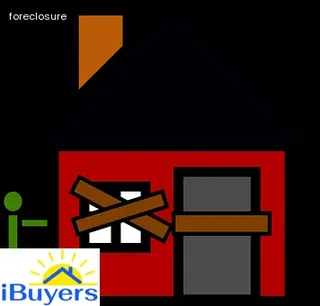In Vermont, when a homeowner defaults on their mortgage payments, the lender can initiate a foreclosure process. This is done through filing a complaint in court that outlines the details of the mortgage loan and any attempts to collect payments from the borrower.
Once this is filed, the court will assign a hearing date so that the borrower has an opportunity to explain their situation and attempt to negotiate with the lender. The court will then decide whether or not they should order foreclosure proceedings.
If they do, there are certain restrictions that must be adhered to in order for it to be legal. For instance, the lender must issue a notice of sale and provide it to both parties at least 30 days prior to the sale date.
Additionally, if there are any tenants living in the home or other liens against it, their rights must be protected during this process as well.

When facing foreclosure in Vermont, homeowners should take proactive steps to protect their property and rights. Firstly, they should contact their lender as soon as possible to discuss their current situation and any available options.
A loan modification or forbearance agreement may be possible depending on the individual's circumstances. Secondly, filing a complaint with the Vermont Office of Financial Regulation can help to ensure that lenders are acting within the confines of state law.
Additionally, homeowners may benefit from speaking with a lawyer or other housing counselor who can explain the foreclosure process and discuss any potential legal remedies. Finally, it is important for those facing foreclosure to stay informed about their rights and keep all paperwork related to their mortgage up-to-date and organized so that they can better protect themselves from repossession.
Navigating foreclosure in Vermont can be a difficult and confusing process. It is important to understand preforeclosure and deficiency judgment laws in the state to ensure that your home is protected from repossession.
Preforeclosure is a period of time where the lender or creditor is trying to regain payment for money owed on the mortgage. During this period, borrowers may be able to work out an arrangement with the lender such as a repayment plan or loan modification.
If they are unable to come to an agreement, the home could be subject to foreclosure. In Vermont, lenders may also obtain a deficiency judgment against homeowners who default on their mortgage after foreclosure occurs.
This allows them to collect on any remaining balance due through legal proceedings such as wage garnishment or bank levies. Homeowners should be aware of these laws in order to protect themselves from repossession and financial hardship during this difficult time.

A breach letter can be an effective tool in stopping foreclosure proceedings in Vermont. The letter should be sent to the lender to explain why the homeowner is having difficulty keeping up with mortgage payments and can provide proof of their financial hardship.
Including documentation such as bank statements, pay stubs, and income tax returns can help demonstrate the homeowner’s financial situation. The breach letter should also include a plan to make up missed payments and a request for the lender to work with them on a payment arrangement or loan modification.
Additionally, if there are extenuating circumstances that have caused financial distress, such as medical bills or job loss, then this should be noted in the letter as well. It is important for homeowners facing foreclosure to reach out for help from their lender before their property is repossessed and a breach letter may be the key step in preventing it.
It can be an incredibly difficult and stressful process for any homeowner to go through foreclosure, so it's important to understand the rights you may still have in the situation. During a foreclosure process, homeowners are typically allowed to remain living in their home until a final judgment is issued.
Homeowners also have the right to contest any claim of foreclosure presented by the lender, or to negotiate with the lender for alternative solutions such as loan modification or repayment plans. You may even be able to sell your home and use the proceeds from the sale as payment on your mortgage loan.
It's important that homeowners seek legal advice during this time as well, since there are specific laws in Vermont regarding foreclosure proceedings such as how late payments can affect the timeline of repossession. Exploring all of your options carefully will help ensure that your right as a homeowner is respected throughout this difficult time and you can work towards protecting your home from repossession.

Navigating foreclosure in Vermont can be a daunting experience, but there are ways to protect your home from repossession. Many homeowners facing foreclosure in Vermont can take advantage of the options available to them through the state's Foreclosure Mediation Program.
This program provides borrowers with the opportunity to meet with their lender, who is also required to send a representative, and discuss possible solutions or alternatives to foreclosure. Homeowners may also want to consider refinancing their mortgage, as it could potentially reduce their monthly payments and help them stay current on their loan obligations.
Additionally, having a loan modification may be an option for those who have experienced an unexpected financial hardship. Finally, working with a housing counselor can provide homeowners with the tools and resources needed to better understand their situation and come up with a plan of action that fits their needs and budget.
In Vermont, homeowners who miss payments on their mortgage can face a variety of penalties. Foreclosure is the most extreme consequence, typically only enacted when multiple payments have been missed and other avenues of assistance have been exhausted.
While foreclosure remains an ever-present threat, there are several steps homeowners can take to protect their property from repossession. Penalties for missed payments can range from late fees and additional interest to the suspension of services such as utilities or insurance coverage.
The best way to avoid these potential consequences is to remain in contact with your lender and seek out available government programs that may be able to provide temporary relief while working towards a long-term solution.

Reinstating a mortgage and avoiding foreclosure in Vermont can be a difficult process. It is important for homeowners to understand their options to stay in their homes and protect their investments.
One of the most common options for avoiding foreclosure is to reinstate the mortgage. This means paying back all missed payments, late fees, and costs associated with the foreclosure process so that the loan is brought current and the homeowner can keep their home.
Homeowners may also be able to enter into a repayment plan with their lender, where they make up past due payments over time while continuing to pay current payments on time. When considering either option, it is important to determine if you can afford the new payment amount or if it will cause financial hardship.
If there are additional funds available, borrowers may also be able to negotiate with lenders for a loan modification or refinancing which could reduce monthly payments and make them more affordable. In addition, many states have programs in place to assist homeowners facing foreclosure by providing counseling services and legal help.
Lastly, it’s important for homeowners to contact a qualified attorney who can help them through this complex process and ensure that they understand all of the legal implications involved in order to protect themselves from future repossession of their home.
Navigating foreclosure in Vermont can be a daunting experience. Fortunately, there are ways to protect your home from repossession by reconnecting with lenders.
Before considering foreclosure, it is important to contact your lender and explain the situation. In many cases, lenders are willing to make payment arrangements or even modify loan terms to help keep homeowners in their homes.
Additionally, borrowers should research state-specific foreclosure laws and rules that may provide additional protection or options for preventing repossession. Furthermore, it is wise to seek assistance from a HUD-approved housing counselor who can provide resources and advice that could help avert foreclosure.
Finally, if you’ve fallen behind on payments, avoiding further communication with lenders won’t stop the process; rather it is essential to stay in touch with them and regularly update them on your situation so they can offer advice or resources that could help prevent foreclosure.

Vermont has a few state and federal laws in place to help protect homeowners from repossession. Foreclosure is a financial process where a lender attempts to recoup the amount owed on a loan by taking possession of the property used as collateral.
The laws vary from state to state, so it’s important to understand what protections are available in Vermont. On the federal level, foreclosure proceedings must follow specific guidelines under the Homeowner Bill of Rights.
This law requires lenders and servicers to provide notice before initiating foreclosure proceedings and prohibits them from pursuing dual-tracking, which is when they move forward with foreclosure while also considering a loan modification request. In Vermont, all foreclosures must be approved by a court order and the borrower must be notified at least 30 days prior to filing the notice of intent to foreclose.
Additionally, certain types of loans such as home equity lines of credit are not eligible for judicial review in Vermont and must go through non-judicial foreclosure proceedings instead. Knowing these laws can help homeowners protect their home from repossession if they find themselves facing foreclosure in Vermont.
In Vermont, understanding the foreclosure process is crucial for those looking to protect their home from repossession. The foreclosure process typically begins with a notice of default in which the homeowner is given 30 days to pay the past due amount.
After that time period has passed, if there is still an outstanding balance, then the lender will file a complaint for foreclosure in civil court. At this stage, the Vermont Supreme Court will review the case and may give additional time for homeowners to cure their default.
If it is not possible to cure the default or if no action is taken to do so, then a public sale of the property will be scheduled and advertised in local papers. Finally, after all bids have been accepted by the court, a certificate of sale will be issued and a sheriff's deed recorded with the town clerk's office.
Those navigating through foreclosure in Vermont must remain informed of their rights along every step of this process to ensure they are doing everything possible to save their home from repossession.

Navigating foreclosure in Vermont can be a difficult and stressful process, but it is possible to protect your home from repossession. The first step of preforeclosure is to get informed and understand the process.
It is important to know what rights you have as a homeowner, the timeline of events, and the legal ramifications of each. Knowing how the mortgage company will attempt to collect payment and what happens if you are unable to make payments is also essential for protecting your home.
Homeowners should also consider consulting an attorney or seeking out other resources such as foreclosure counseling services as soon as possible in order to get advice on their individual situation. Understanding options such as loan modification, repayment plans, forbearance agreements, deed in lieu of foreclosure, or short sales can help homeowners make decisions that best suit their needs.
It is important to take action quickly so that homeowners are able to explore all available options before having their home taken away. After researching these topics, it is then time for homeowners to decide which steps they will take moving forward.
Defaulting on your mortgage means you have missed or failed to make payments on your loan for an extended period of time. The exact timeframe varies based on the lender and the type of loan, but generally speaking it’s around 90 days.
When a homeowner defaults, the lender can start foreclosure proceedings and repossess the home. This can result in the homeowners being evicted from the property and having their credit rating severely damaged.
It is important to note that defaulting on a mortgage does not always lead to foreclosure, but it can if action isn’t taken quickly. Homeowners in Vermont should familiarize themselves with their state’s foreclosure laws so that they know what options they have if they find themselves facing defaulting on their mortgage.
There are certain steps that homeowners must take in order to protect their home from repossession such as negotiating with lenders, creating a payment plan or seeking legal counsel.

Facing foreclosure can be a stressful, overwhelming experience for any homeowner. But in Vermont, it's important to understand the potential impact of a deficiency judgment lawsuit - a legal action that may be taken by the lender after the foreclosure.
In this situation, lenders may claim the right to sue for any amount still owed on the mortgage above what was received from selling the property. This means that even after repossession has occurred, borrowers are still liable for any remaining balance to the lender.
It is important to note that certain laws in Vermont limit how much lenders can recover through such lawsuits, but if these limits do not apply in your case, you could find yourself facing serious financial hardship at an already difficult time. Furthermore, if you fail to respond to or appear in court when summoned as part of this lawsuit, you will likely have a default judgement taken against you which could have long-term consequences.
Therefore, it is essential to seek legal advice and properly prepare yourself if faced with this possibility.
Navigating a foreclosure in Vermont can be a daunting and difficult process, however, there are steps you can take to protect yourself from financial loss associated with the repossession of your home. One of the most important things you can do is to stay informed about the foreclosure laws and procedures in Vermont.
Knowing your rights as a homeowner is key to protecting yourself from unfair or predatory practices. You should also contact an experienced lawyer who specializes in foreclosures in Vermont, as they can help advise you on how best to protect yourself financially during this process.
Additionally, it is important to keep up with all payments due on your property taxes, mortgage payments, and insurance premiums so that you don’t fall into further arrears. If possible, try to negotiate with your lender for a loan modification or forbearance agreement that will provide some temporary relief from the mounting debt.
Finally, if you need assistance finding resources that can help address any financial issues related to your foreclosure situation, consider reaching out to HUD-approved housing counseling agencies who may be able to assist you with budgeting, credit repair advice and more.

If you are facing foreclosure in Vermont, it is important to seek professional assistance to help protect your home from repossession. Professional advisors can provide invaluable guidance throughout the process and help ensure that your rights are protected.
From providing advice on how to handle delinquent payments and negotiating payment plans with lenders, to exploring alternatives such as loan modifications or refinancing, a professional advisor can give you the information and resources needed to make informed decisions. Additionally, they may be able to review existing paperwork and determine if there are any violations of applicable laws that could be used in your favor.
When navigating foreclosure in Vermont, it is essential to have an experienced advisor on your side who can advise you of all available options and work with you throughout the process.
Navigating foreclosure in Vermont can be a daunting task. To protect your home from repossession, it is important to evaluate the resources available for dealing with VT foreclosures.
Homeowners facing foreclosure should start by researching options and seeking out professional guidance. The Vermont Housing Finance Agency has created the Foreclosure Mediation Program (FMP) to help borrowers reach an agreement with their lender before a foreclosure occurs.
The Vermont Department of Financial Regulation provides access to free housing counseling services and legal assistance for navigating the foreclosure process. In addition, many non-profit organizations offer free or low-cost financial counseling services that can provide advice and support on how best to deal with a foreclosure situation.
Understanding all of the options available for dealing with a VT foreclosure can be overwhelming, but armed with knowledge and information about available resources, homeowners have a better chance of protecting their home from repossession.

When facing foreclosure in Vermont, understanding the available options is key to preventing repossession of your home. Homeowners should consider negotiating with their lender to create a payment plan or restructure the loan to make repayment more manageable.
Negotiating for a lower interest rate or longer repayment term can make monthly payments more affordable and reduce the likelihood of defaulting on the loan. Furthermore, it is possible to renegotiate the terms of an existing home loan if it has a higher interest rate than current market rates.
Additionally, homeowners may be able to refinance their loan or apply for government assistance programs that can help them get back on track with their mortgage payments. Exploring these solutions is essential in order to protect your home from foreclosure and keep it out of repossession.
In Vermont, the foreclosure process usually takes between three and four months, depending on the complexity of the case. The timeline begins when the lender files a complaint in court to initiate foreclosure proceedings.
This is followed by a period of legal notices being sent out to homeowners. After that, a sale date for the property is set and any remaining payments must be made in full by this date or the home will be repossessed.
Homeowners have 30 days from the issue of a court order to file an objection or request a hearing before their home is put up for auction. If there are no objections, then it can take up to 90 days for the property to be sold at public auction.
Ultimately, it's important for homeowners to understand how long each stage of the foreclosure process typically takes so they can take action quickly if needed in order to protect their home from repossession.

There are many reasons why people may let their homes fall into foreclosure. In Vermont, these can range from financial hardship caused by job loss or medical expenses to simply not understanding the mortgage process and missing payments.
Other factors that lead to foreclosure in Vermont include an inability to keep up with rising property taxes, failing to pay for home repairs, or having a loan that has an adjustable interest rate that becomes too expensive. Additionally, some homeowners may get overextended due to taking out second mortgages or using home equity lines of credit without the ability to make payments over time.
Furthermore, Vermont residents who purchased their homes during the housing bubble may be unable to afford their monthly payments after values drop. Whatever the cause of foreclosure in Vermont, it is important for homeowners to understand their options and take steps to protect their home from repossession.
Vermont is a judicial foreclosure state, which means that lenders must go through the court system to foreclose on a home. This process can take time, allowing homeowners to have more options when attempting to avoid repossession.
Borrowers in Vermont have sixty days after receiving notice of intent to foreclose before the lender can file suit with the court. During this time, homeowners may be able to negotiate with the lender or enter into a loan modification, repayment plan or forbearance agreement.
As well, they can look into other options like refinancing or selling the home in order to protect it from repossession. It is important for borrowers in Vermont who are at risk of foreclosure understand their rights and know what options are available in order to protect their home from being taken away.
A deed in lieu of foreclosure Vermont is a legal document that allows homeowners to voluntarily transfer ownership of their property to their lender. This document is used when a homeowner is unable to make payments on their loan and the lender agrees to accept the deed in lieu of forcing the homeowner into foreclosure proceedings.
The deed in lieu of foreclosure agreement helps protect homeowners from repossession while avoiding the long and costly process of going through traditional foreclosure proceedings. By signing a deed in lieu, the homeowner relinquishes all rights and title to the property, including any claims they may have against it.
The lender then has full control over what happens with the property. It can either keep it or sell it to recoup some of its losses from the original loan.
In Vermont, this process must be conducted under state laws and regulations, which provide protections for both borrowers and lenders. Homeowners who are considering entering into a deed in lieu agreement should do so only with an attorney’s help and after fully understanding all the potential risks and benefits involved.